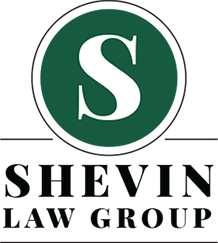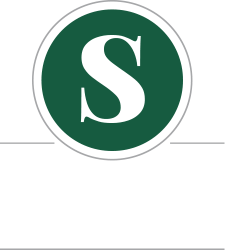
Los Angeles Probation Violation Lawyer
When someone is first sentenced to probation, it feels like a second chance. A chance with serious restrictions to be sure. But it’s a far cry from prison time and it's a chance to have one’s life in better shape when the sentence is up. Now, facing a probation revocation hearing, all of that is jeopardized. Probation violation in California comes with a lot of risk, but a good criminal defense attorney can help work through it.
A Los Angeles probation violation lawyer at Shevin Law Group will fight for you at your hearing. Call us today at (818) 918-5838 or contact us online.
What is Probation in California?
Probation is a legal arrangement where a person is allowed to remain in the community under certain conditions, rather than being sent to jail or prison. In California, probation conditions can include things like regular check-ins with a probation officer, completing community service, attending counseling or treatment programs, and staying away from certain people or places. If a person on probation violates any of the conditions of their probation, they may face probation violation charges.
Some common examples of probation violations in California include:
- Failing a drug test: If a person is ordered to abstain from drug use as a condition of their probation, and they fail a drug test, they may be considered to have violated their probation.
- Failure to appear in court: If a person fails to appear in court as ordered, they may be in violation of their probation.
- Not completing community service: If a person is ordered to complete a certain number of community service hours as a condition of their probation, and they fail to complete them, they may be considered to have violated their probation.
- Failure to pay fines or restitution: If a person is ordered to pay fines or restitution as a condition of their probation, and they fail to do so, they may be considered to have violated their probation.
- Contact with prohibited persons: If a person is ordered to stay away from certain people as a condition of their probation, and they have contact with those people, they may be considered to have violated their probation.
- Committing new crimes: If a person commits a new crime while on probation, they may be considered to have violated their probation.
The Rules Have Changed
A person’s constitutional rights are still in effect at a probation revocation hearing. But they will be applied in different ways. The biggest change is that you no longer have to be found guilty beyond a reasonable doubt. Now, the burden of proof for the prosecution is the easier-to-prove more likely than not.
Why the change? The reason is that the individual in question has already been convicted of a crime and with the beyond a reasonable doubt standard. Presuming that conviction came with a prison sentence, that’s already what “should” be being served, at least in the eyes of the legal system. The probation was essentially a break the system offered.
Now, that doesn’t mean a court can whimsically revoke a probation that’s been granted. It still must be proven that probation is more likely than not. But the reduction from the roughly 95 percent certainty that goes with reasonable doubt down to the 50.1 percent certainty that comes with more likely than not…well, that’s a big change in the rules.
What’s more, the prosecution can introduce evidence under rules that are more lenient than the original trial. The biggest example is hearsay. Let’s say that at trial, your ex-spouse’s best friend told someone you were guilty. Unless that friend was willing to testify to that directly in court, then the original comments are not admissible. It’s just hearsay.
But now, at the probation revocation hearing this same friend of the ex-spouse says they saw you out at 2 AM when your probation-required curfew is 10 PM. Even if the friend won’t show up in court, the hearsay evidence is admissible. How seriously the court will take it will depend on the judge and the rest of the evidence, but the simple fact hearsay can be introduced is another factor working against the defendant.
Possible Penalties for Probation Violation in California
The most serious consequence of probation violation is being sent to prison for the original crime. Furthermore, let’s say someone was convicted but got less than the maximum. Their probation sentence was five years, but the judge had the option under sentencing guidelines to go for 10 years. The full 10 years is now back on the table.
Less severe options include extending the length of probation and additional conditions. For example, if evening curfew violations are the reason for the hearing, the judge may order additional community service as a means of requiring the defendant to be up early every morning.
The rules may have changed, and the potential consequences are certainly serious. But there are viable strategies for a defense depending on the situation.
-
Steve N.
One of the best attorneys I've had the privilege of working with in my entire life He cares about his clients, takes care of business, and always gets the best results. I would recommend him highly to anybody that has an issue and if you use my name you'll probably get a better price but don't tell him I said that.
-
“The amount of experience, knowledge, and expertise in the criminal and cannabis field is incredible”Harry A.
-
“He has always done a good job and gone the extra mile for me.”Matt C
-
Roddy D.
As a colleague, I have the privilege of witnessing Eric's success on a large scale. He is a great human being and genuinely cares about his clients. He is honest, never sugar coats, says what he means, and means what he says. Any client should feel blessed to have this Jedi-Attorney on their team!
-
Eric Shevin is an outstanding attorney. He is patient, concise, honest, and always answers your calls with any questions you may have. His fees are also very reasonable. It has been a pleasure working with him in the past few years that i have known him. I highly recommend him.Shoram Z.
-
“He cares deeply about his clients and has a track record of success for 30 years”Carolyn R.
-
Wesley H.
Have used the Law Offices of Eric Shevin for a variety of legal services ranging from complex business structuring to short contract negotiations. The services were always excellent, on-time, and cost effective.
-
Bob M.
I've been a client of Eric Shevin's for over 10 years in a variety of different matters. Excellent staff & attention to detail. I highly recommend his Law Group.




